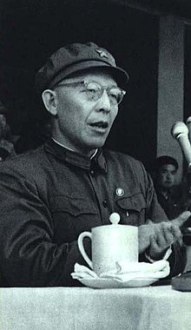[...] historical memory that stretches back further than when hipsters started joining the Democratic Socialists of America would be helpful. Even going just one decade back from when the pyramid scheme to get the editors of the misnamed Jacobin magazine jobs in a never-gonna-happen Bernie Sanders administration (excuse the lengthy but more accurate name for the DSA) started gaining steam would be helpful.
Cynthia McKinney [...] is a telling example of what happens when you refuse to renege on principled stands with the oppressed people of the world while being a member of Congress. A Black woman elected from the district of northwest Atlanta and its environs, McKinney consistently took principled stands against the atrocities perpetrated by the Bush administration, including its widespread use of legalized torture as part of the “War on Terror,” and even brought articles of impeachment against President Bush. McKinney did not limit her actions to the talk shop of Congress, but also joined with resistance movements against imperialist war, torture, and the gross mistreatment of Katrina evacuees, making allies with those acting outside the bounds of bourgeois politics. When she refused to back down from these principled stands, she was run out of office by the (likely coordinated) efforts of the Democratic Party establishment and wealthy Black elites, losing the 2006 Democratic Party primary, and thus her seat in the House of Representatives, to Hank Johnson. Since being ousted from Congress, McKinney has continued to stand with the oppressed people of the world, even being detained and deported by the Israeli military for trying to deliver aid to the Gaza Strip by boat. Know your friends, know your enemies, and know how the bourgeois electoral system spits out the former, welcomes the latter, and has great skill and proven practice at turning the former into the latter.


I thought he had some critique of Avakian in other writings. Will reserve judgement pending actually doing the reading but I think in general it's important to learn from Peru even if we don't uphold them.
There's plenty to learn from Peru, but the shining path itself provides only negative examples
Please. Seeing the current level of organization in the US there's a lot we can learn from every movement claiming loyalty to the communist cause, and especially those in the third world
https://kites-journal.org/2021/09/17/chairman-gonzalos-legacy-of-steadfast-revolutionary-principle-and-strategic-innovations/
what looks like a studied, humble approach to Gonzalo here
https://kites-journal.org/2019/12/11/on-infantile-internet-disorders-and-real-questions-of-revolutionary-strategy-a-response-to-the-debate-over-the-universality-of-protracted-peoples-war/
lol
I don't disagree in principle, but with respect comrade, that article highlights the dogmatism of shining path leadership as their core failing. It completely leaves how that they dogmatism was within an environment of shining path members being, iirc, vastly majority of settler origin and, if not a Petite-bourgeois class status, than at least highly privileged workers. It doesn't mention how the two combined to completely ignore the concept of the mass line, ignoring at all times the will of the peasants in an attempt to pressure them into people's war. This is explained as "to give the Peruvian masses a means to not only fight back, but to dare to overthrow the system of capitalism". I'm not sure that's what was achieved after all was said and done.
I'm not saying there's nothing useful to be learned, but I would advise extreme caution with an author who views such a deranged Marxist with reverance, and conveniently leaves out some of the largest actual issues with the shining path.
The open questions seem useful, although I'm not sure if I agree that the disarray in the international communist movement began in 1976. Maybe disarray among Maoists.
Anyways thank you for your time, appreciate your insight.